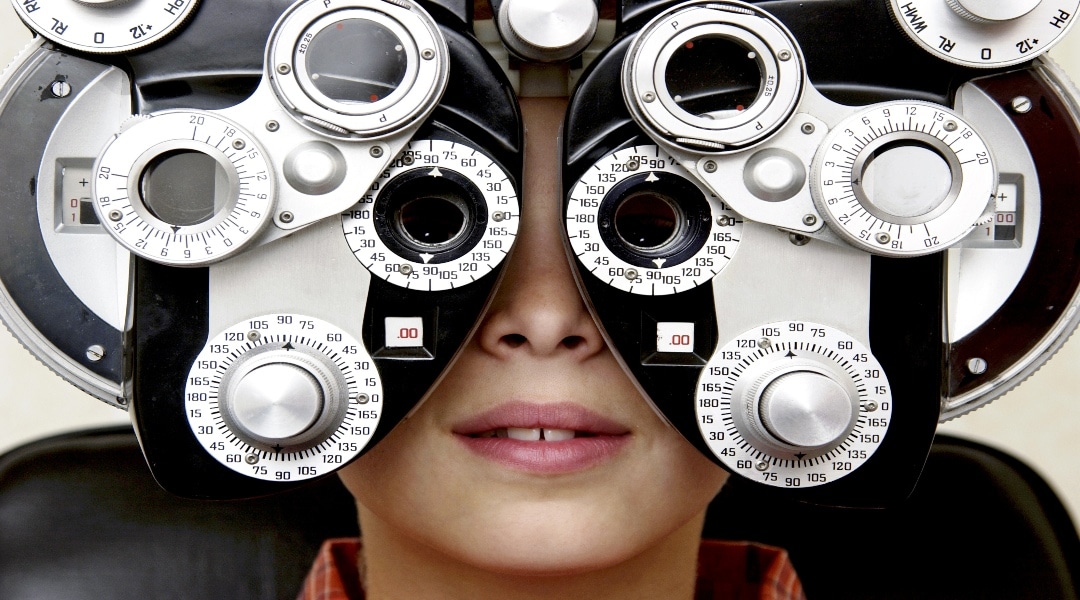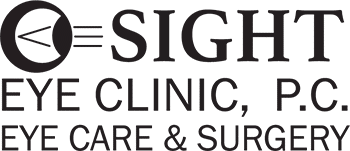Happy National Eye Exam Month! Are You Due?
August is National Eye Exam Month in the United States! How long has it been since you got a comprehensive eye exam? Last year? A couple of years ago? Can you even remember?
Unfortunately, even under normal circumstances many people don’t schedule eye exams as often as they really should. And with the COVID-19 pandemic still on everyone’s mind, we understand why you may still be a little hesitant to schedule a “routine” checkup.
But you should also understand that maintaining good eye health is a critical component of your overall health—and that’s true even if you don’t wear glasses or contacts, or have any previous history of eye problems.
With summer coming to a close, kids going back to school (whether virtually or in person), so many of us spending a lot of time looking at screens, and countless other reasons, August is the perfect time to schedule a check-up for you and your loved ones.
How Often Should I Get My Eyes Checked?
We strongly encourage all people to get a comprehensive eye exam at the very least once every two years, and ideally once per year, even if they have no history of eye problems.
That might sound like overkill, but there are many good reasons you should take eye health extremely seriously. After all, you only get one set of eyes, and they are absolutely essential for almost every task or activity that you do.
But in case you aren’t yet convinced, here are some additional reasons why you should schedule an eye exam soon if it’s been more than a year since your last one.

Degenerative Eye Conditions Are Very Common—and Need to Be Detected Early for Best Results
Many eye illnesses develop very slowly, over a long period of time, and can ultimately lead to severely reduced vision (or even total blindness) if they are not identified and treated in time. Glaucoma, macular degeneration, retinopathy, and cataracts are all common examples, but certainly not the only ones.
The problem is, many of these conditions may not produce any noticeable symptoms in the early stages. And even when they do start to cause some vision problems, they can occur so slowly that you may not even notice it until symptoms become much more severe.
During a comprehensive eye exam, we not only thoroughly check your visual range and acuity, but also things like fluid pressure in the eye, health of the retinal nerve, and more. An ophthalmologist can spot the early warning signs of serious conditions long before you can—and that is often the difference between either maintaining your healthy vision over the long term or suffering permanent vision loss.
Your Eyes Are a Window into Your General Health
Unfortunately, we often think of things like “eye care,” “dental care,” or “mental health care” as separate from “general health care,” but the truth is they are all interconnected and inseparable. What is occurring in the rest of your body will affect your eyes, and vice versa.
Here’s a fairly simple, common example. Often just by checking your eyes, we can determine if you probably have high blood pressure. The classic sign would be blood vessels in your retinas appearing hardened, damaged, or even leaky. So in addition to helping protect your vision, your ophthalmologist can provide you with vital information that can help you prevent a stroke or heart attack, too!
There are many other examples of this. Gradual development of blurry vision, for example, is a classic sign of diabetes. Eyes that appear yellowish could indicate liver problems. Conditions such as lupus, psoriasis, thyroid disease, and even multiple sclerosis can all be flagged on an eye exam, before following up with your general practitioner to confirm a diagnosis.
Check out this blog for more details on health issues we can spot in your eyes.
Your Vision May Have Changed
If you don’t wear glasses or contacts now, you may reach a point when you do need them. (More than half of Americans wear corrective lenses at least part time, and not all of them have been doing so since childhood.)
And if you do wear corrective lenses, you should already know that your prescription will change over time.
The faster you keep up with these changes in your vision and address them with proper corrective eyewear, the better. When you can’t see as clearly as you need to, all sorts of problems can occur, including headaches, increased eye strain and pain, decreased safety when driving or performing physical tasks, difficulties at work or school, and more.
Is It Really the Right Time?
Again, we understand your concerns. The ongoing pandemic has forced all of us to take a step back and consider whether a given activity makes sense given the risk.
However, we can tell you the following:
- Staying on top of your eye care is extremely important, and regular eye exams are a critical part of that process—especially if you are over 40, or have a personal or family history of vision problems, eye disease, or other conditions known to affect eye health (e.g. diabetes.)
- We at the Sight Eye Clinic are taking extensive precautions and going above and beyond state guidelines and rules to make our office environment as safe as possible. We take your health extremely seriously, and have made every effort to avoid exposing any of our patients, staff, or families to unnecessary risk.
If you have any questions or concerns, please don’t hesitate to call us at any time.
Don’t let National Eye Exam month pass without taking a moment to carefully consider the health of your eyes—and calling to schedule your next appointment if it’s been too long since your last one! You can reach us at (616) 772-2020, or contact us online.
